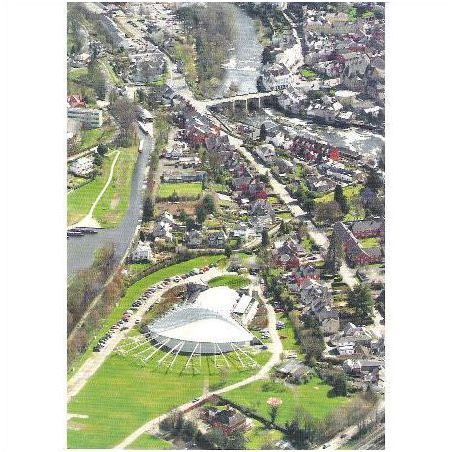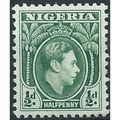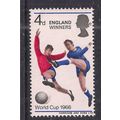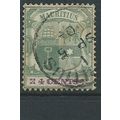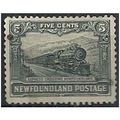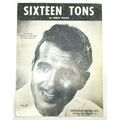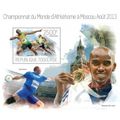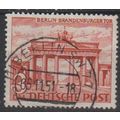Llangollen, Flintshire - Eisteddfod from the air - postcard
- Condition : Used
- Dispatch : 2 Days
- Brand : None
- ID# : 106620708
- Quantity : 1 item
- Views : 259
- Location : United Kingdom

- Seller : justthebook (+1699)
- Barcode : None
- Start : Wed 22 May 2013 18:11:55 (EDT)
- Close : Run Until Sold
- Remain : Run Until Sold
Checks/Cheques
 for 1 item(s) edit
for 1 item(s) edit
Shipping Calculator
More Listings from This Seller view all
Seller's Description
- Postcard
- Picture / Image: Llangollen Eisteddfod - view from the air
- Publisher: Fine Angle Photography
- Postally used: no
- Stamp: n/a
- Postmark(s): n/a
- Sent to: n/a
- Notes / condition:
Please ask if you need any other information and I will do the best I can to answer.
------------------------------------------------
Postage & Packing:
UK (incl. IOM, CI & BFPO): 99p
Europe: £1.60
Rest of world (inc. USA etc): £2.75
No additional charges for more than one postcard. You can buy as many postcards from me as you like and you will just pay the fee above once. (If buying postcards with other things such as books, please contact or wait for invoice before paying).
Payment Methods:
UK - PayPal, Cheque (from UK bank) or postal order
Outside UK: PayPal ONLY (unless otherwise stated) please. NO non-UK currency checks or money orders (sorry).
NOTE: All postcards are sent in brand new stiffened envelopes which I have bought for the task. These are specially made to protect postcards and you may be able to re-use them. In addition there are other costs to sending so the above charge is not just for the stamp!
I will give a full refund if you are not fully satisfied with the postcard.
----------------------------------------------
Text from the free encyclopedia WIKIPEDIA may appear below to give a little background information (internal links may not work) :
*************
The Llangollen International Musical Eisteddfod is a music festival which takes place every year during the second week of July in Llangollen, North Wales. Singers and dancers from around the world are invited to take part in over 20 high quality competitions followed each evening by concerts where the best and most colourful competitors share the stage with professional artists. Over five thousand singers, dancers and instrumentalists from around 50 countries perform to audiences of more than 50,000 over the 6 days of the event.
Famous performers at Llangollen have included Luciano Pavarotti (who first competed in 1955 with his father and a choir from their home town Modena), Red Army Ensemble, Julian Lloyd Webber and Ladysmith Black Mambazo. The final Sunday Evening Gala Concert has featured Katherine Jenkins, Bryn Terfel, Kiri Te Kanawa, James Galway and Montserrat Caballe.
The 2007 Eisteddfod included performances by José Carreras, Joan Baez, and Hayley Westenra. In 2008, there were performances by Elaine Paige, All Angels, and Alfie Boe; in 2009, performances by Barbara Dickson, Sir Willard White, Blake, and Natasha Marsh, with a James Bond 007 spectacular, featuring the Orchestra of Welsh National Opera, as the Sunday finale; 2010 saw performances by Katherine Jenkins and Nigel Kennedy. In 2011 there were concerts featuring Lulu, Russell Watson, Faryl Smith, Ruthie Henshaw and McFly.
In 2012 the Eisteddfod played host to Lesley Garrett, Alison Balsom, Nicola Benedettii and Sian Edwards in a celebration concert for the Queen's Diamond Jubilee. There were also appearances by Alfi Boe, Steffan Morris, and Valentina Nafornta, and a performance of Karl Jenkins's new work ""The Peacemakers"" by a specially formed massed choir accompanied by the Llangollen International Eisteddfod Orchestra. The week was rounded off by the Grand Finale Concert, featuring Fflur Wyn, Wynne Evans, Mark Llewelyn Evans, John Owen-Jones and Richard Balcombe.
The following history is based on the account on International Eisteddfod official web-site written by Professor Chris Adams, April 2006.
The origins of the International Eisteddfod go back to 1943 when Harold Tudor, an officer of the British Council, arranged a visit for members of governments-in-exile to the Welsh National Eisteddfod in Bangor. The excursion was well received especially by the noted writer and poet Juraj Slavik, the Minister for the Interior in the Czechoslovakia Government in Exile. Following the visit he wrote to Tudor praising the value of music as a way of healing the effects of War. The following year an international concert was held as part of the Llandybie National Eisteddfod.
Towards the end of 1945 Tudor proposed that an international choral festival be added to the 1947 Welsh National Eisteddfod, however the Council of the National Eisteddfod felt that as all their effort were involved in rebuilding their own organisation they could not take on such a scheme. Tudor modified his proposal into an independent music festival and found support for this idea from W. S. Gwynn Williams, Welsh composer and music publisher and George Northing, a teacher from Dinas Brân County School and chairman of Llangollen town council. Gwynn Williams and Northing both pressed for the Eisteddfod to be in their home town of Llangollen.
The public gave support to this idea at two public meetings in May 1946 but concerns were also raised about who would come, where the event would be held and how the event would be financed. The British Council offered to help find choirs from Europe and to give financial support however the town decided to raise the money through a public subscription and quickly gathered over £1100. George Northing was made director of the executive board; Gwynn Williams became music director; Harold Tudor was Director of Publicity and W. Clayton Russon, a local businessman and High Sheriff of Merionethshire became President.
Plans to hold the event on the school field of Dinas Bran County School progressed throughout 1946-47. Accommodation for the overseas competitors would be in houses in the town and surrounding area and domestic participants would be given beds in church and school halls. As rationing was still in place ration coupons had to be found for all the visitors and the Minister of Food was eventually persuaded to supply these.
When in June 1947 it was time for competitors to travel to Llangollen a railway strike had started in France and there were serious doubt as to whether any overseas competitors would be able to arrive. Considerable relief was felt by the organisers when the first coach of competitors arrived bringing the ladies’ choir Grupo Musical Feminino from Oporto, Portugal. They were the eventual winners of the Ladies Competition whilst the Men's competition was won by the Hungarian workers’ choir, who had completed their journey to Wales by hitch-hiking when their train had been cancelled at Basle because of the French strike.
The Esperanto Society played a significant part in the first year when it was felt that there could be a shortage of participants. Reto Rossetti, a well-known figure and author in the Esperanto movement, was asked to help and through publicity in Esperanto magazines and to the surprised of the organisers, several groups contacted the Eisteddfod committee. One troup of Spanish dancers, on a tour of Britain sponsored by the Esperanto Society, arrived and despite there not being a dance competition in the first year performed to delighted audiences. This made such an impression that folk dance competitions have featured in every subsequent Llangollen Eisteddfod.
The eisteddfod was brought to close by what has now become the traditional Sunday concert featuring Sir John Barbirolli and the Hallé Orchestra. The 1947 International Eisteddfod was hailed as an unqualified success with praise for the organisers, the founders, and all the competitors. There was even a surplus of £1,432 to be used for the next year's event.
One of the festival's first tests of its peace promoting mission occurred in 1949, just four years after the end of the war, when a choir from Lübeck, Germany, came to compete at the Eisteddfod. The festival's compère Mr Hywel Roberts, whose brother had been killed in the war, introduced the choir with the words: ""Ladies and gentlemen, please welcome our friends from West Germany."" The choir was warmly welcomed with a burst of applause from the audience.[1]
type=printed postcards
theme=topographical: british
sub-theme=wales
county/ country=flintshire
number of items=single
period=1945 - present
postage condition=unposted
Listing Information
| Listing Type | Gallery Listing |
| Listing ID# | 106620708 |
| Start Time | Wed 22 May 2013 18:11:55 (EDT) |
| Close Time | Run Until Sold |
| Starting Bid | Fixed Price (no bidding) |
| Item Condition | Used |
| Bids | 0 |
| Views | 259 |
| Dispatch Time | 2 Days |
| Quantity | 1 |
| Location | United Kingdom |
| Auto Extend | No |


